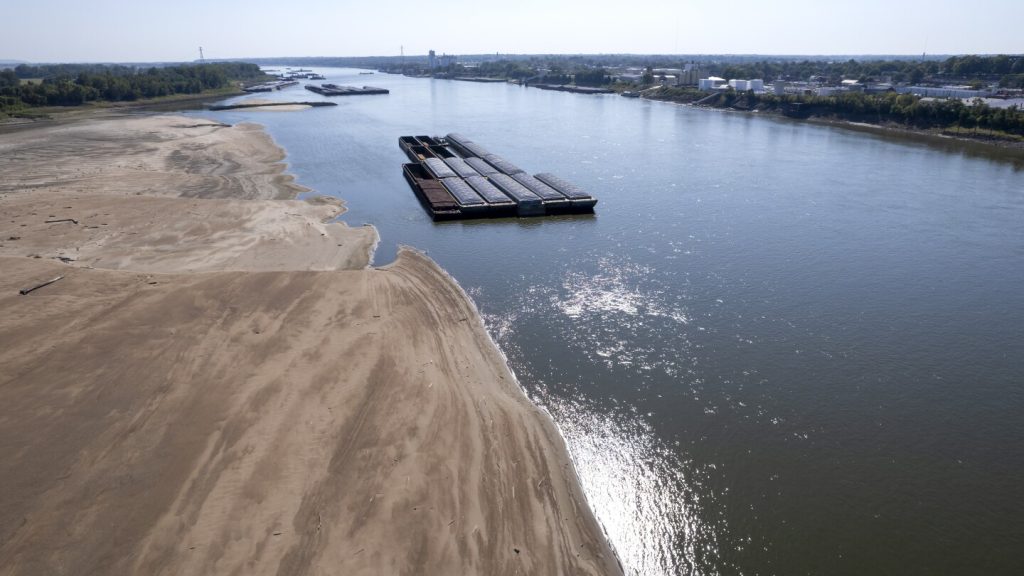The Mississippi River is experiencing unusually low water levels for the third consecutive year, impacting barge companies and farmers. The drop in water levels has caused barge companies to limit the amount of cargo they can carry, particularly in the area south of St. Louis. This reduction in cargo capacity is affecting farm profits, as around 60% of U.S. grain exports are transported by barges down the Mississippi to New Orleans for shipment to other countries. With less cargo being moved, farmers are facing financial challenges, as demonstrated by the recent 17% drop in grain transportation via barges for the week ending August 31.
The decrease in cargo capacity on barges has led to increased costs for transportation. Freight rates originating in St. Louis and Memphis have seen significant increases compared to the previous year and the three-year average. These cost increases are putting additional pressure on farmers, who are unable to pass the expenses on to customers due to the international nature of their sales. Mike Steenhoek, the executive director of the Soy Transportation Coalition, highlighted the challenges farmers face in absorbing higher transportation costs without being able to raise prices on their products. This situation is likely to have a direct impact on farmers’ profitability and overall financial well-being.
The contrast between major flooding in some states and drought in others along the Mississippi River has further exacerbated the low-water levels. While areas like Iowa, Illinois, and Wisconsin experienced significant flooding in July, states along the Ohio River, which feeds into the Mississippi at Cairo, Illinois, faced drought conditions. The lack of rainfall in states like Ohio and West Virginia during the summer, including worsening conditions in August, has contributed to the ongoing challenges with low water levels in the Mississippi River. Officials have been closely monitoring the situation, with dredging operations being adjusted to address areas of concern as they arise.
The Corps of Engineers in Memphis, Tennessee, has expressed concerns about the growing drought conditions along the Mississippi River, particularly south of Cairo. Despite efforts to manage the water levels and mitigate potential risks, the river continues to hover just a few feet above record low levels reached in previous years. With Hurricane Francine expected to bring significant rainfall to the lower Mississippi River, including areas like Memphis, there is hope that the water levels may improve in the coming days. However, the ongoing challenges with low water levels and the impact on barge transportation highlight the need for continued monitoring and management of the Mississippi River to support agricultural and commercial activities in the region.
Overall, the situation with low water levels in the Mississippi River is having a significant impact on barge transportation, agriculture, and freight costs. Farmers are facing financial pressures due to limited cargo capacity on barges and increased transportation expenses. The need for efficient and reliable transportation of crops along the Mississippi River remains a critical concern for the agricultural industry, particularly as the region continues to navigate the challenges of fluctuating water levels and weather patterns. As efforts continue to address the current situation and plan for future water management strategies, stakeholders are closely monitoring developments to ensure the long-term sustainability of agricultural and commercial activities along the Mississippi River.


